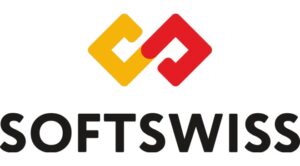Key Moments:
- Mayor Brandon Johnson has proposed a 10.25% tax on adjusted gaming receipts from online sports betting operators in Chicago.
- The new tax measure is projected to generate an additional $1.15 billion, supporting the city’s 2026 budget strategy.
- Recreation taxes affecting gaming, liquor, and cannabis could increase by 15.8% if the plan is adopted.
Chicago Proposes Online Sports Betting Tax Hike
A plan presented by Mayor Brandon Johnson seeks to introduce a 10.25% tax on adjusted gaming receipts from online sports betting operators in Chicago. This proposal features in the city’s 2025/26 Protecting Chicago Budget and is designed to raise local revenues without increasing property taxes.
Included in “Priority 6: Balance an equitable budget,” the new tax is a response to a surge in online sports wagering over the last five years, during which more than $48 billion has been wagered in Chicago. According to Johnson, this measure ensures that the rapidly growing sports betting sector continues to contribute to public funding goals and supports ongoing city development.
Chicago Mayor Brandon Johnson is proposing a 10.25% tax on adjusted gross sports betting revenue generated in the city for his 2026 budget, which would bring top operators in Illinois to a combined rate above 50% when including the maximum state levy
— InGame (@InGameHQ) October 17, 2025
Key Revenue Generation Strategies
The proposed online sports betting tax is expected to deliver an extra $1.15 billion for the city. The measure is part of a wider initiative encompassing several revenue streams, such as a surcharge on large employers, modifications to the Personal Property Lease Tax, and revisions to the city’s transport tax structure. Together, these strategies could add $500 million to Chicago’s 2026 budget.
| Revenue Source | Proposed Change | Projected Impact |
|---|---|---|
| Online Sports Betting | 10.25% tax on adjusted gaming receipts | $1.15 billion additional revenue |
| Surcharge on Large Employers | New/Expanded surcharge | Contributes to $500 million increase |
| Personal Property Lease Tax | Adjustments to existing tax | Contributes to $500 million increase |
| Transport Tax Structure | Changes to current framework | Contributes to $500 million increase |
Potential Impact on Gaming and Entertainment
The city budget also outlines a 15.8% increase in recreation taxes that apply to the gaming, liquor, and cannabis sectors. This means sports betting operators could face rising costs beyond the newly proposed 10.25% tax rate.
The overall strategy aims to build a $6.06 billion corporate fund by 2026, representing a 4.7% rise compared to the current budget. Johnson has positioned the action as both fair and economically responsible.
Defending the Proposal
The Mayor emphasized the focus on maintaining property tax stability while advancing city funding priorities.
Johnson said:
“To make Chicago more affordable for working families, the Protecting Chicago Budget advances a fair and balanced revenue strategy—one where everyone contributes in line with their capacity.”
He explained that the plan was influenced by the results of the city’s Budget Engagement Survey, indicating resident support for measures such as online sports wagering, a community safety surcharge, and increased fees for vacant buildings.
Industry Reaction and Recent Context
This proposal surfaces as Illinois operators continue to adapt to a wagering tax change enacted by the state in July. Some companies, including FanDuel and DraftKings, have introduced transaction fees or set minimum bet amounts in response to those earlier cost increases.
If the new Chicago tax is implemented, operators may need to revisit their margin and pricing strategies for local customers, potentially leading to renewed discussions about the relationship between public finance and private sector growth.
- Author


